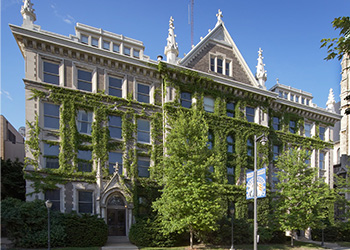Staff-employed or independent journalists residing in the United States or its territories. Applicants should have at least five years of professional experience and produce journalism regularly as an employee or freelancer. Applicants may be connected to print operations, radio, television, podcasts, online publications, wire services, or magazines of general public interest. There are no academic prerequisites. In-depth reporting experience is a plus.
It is Marquette’s policy that recruitment, employment, promotions, demotions, transfers, compensation, training, terminations, and other personnel decisions will be made to achieve a balanced workforce, in accordance with the principles of equal employment opportunity and affirmative action.
